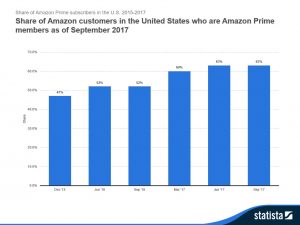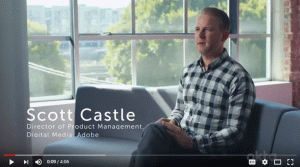Your Content is Useless Without Good Headlines. Here’s Why

What do you do first when you think of a good idea clear content marketing strategy, such as an idea for a new eBook or whitepaper? If you’re like most content creators, you immediately plunge yourself into research or start outlining the piece with an idea of what you want to present to your audience. You have a vision of the body of the article, what you believe to be the fundamental core of the piece, because that’s obviously the most essential part of the piece, right?
Content is Useless Without Good Headlines
It’s not wrong to dive into the research for your article, but the reality is that the piece’s headline is probably even more important than the body content. And you will write better and freer with a great title to keep you on topic.
This may seem silly, especially considering a 10,000-word essay can be reduced to only six or seven words in a vague headline. But even in this case, your essay may be useless without a good headline to ground it.
So what is it that makes headlines so essential, and what steps can you take to make your headlines good enough to support your content strategy?
Why Headlines are so Important
First, let’s talk about why headlines are so important for your content strategy.
-
Most people only read headlines.
A few years ago, a popularly shared and distributed study showed that 70 percent of people frequently shared articles without actually reading them, only glancing at the headline before sharing with their friends and family members on their social platform of choice. The irony of this is that there was no actual study; the headline was generated as a self-aware way to demonstrate just how many people were willing to share an article without reading beyond the headline.
Research institutions then tried to formally measure this propensity and found that somewhere between 50 and 70 percent of people actually engage in this behavior. Because some members of your audience are only going to read the headline and never consider the body content, the importance of your headline becomes even more critical.
-
Without a good headline, your body content will be ignored.
If a tree falls in the forest and there’s no one around to hear it, does it make a sound? That’s an important philosophical question without a firm answer. But here’s a similar question with a firm answer; if nobody reads your article, does it matter how good it is? The answer is no.
Content quality only matters to your content marketing strategy if people are actually seeing in reading your content. If your headline is not compelling, it will not generate traffic. If you don’t have traffic, you won’t have visibility. Therefore, the quality of your body content is not as important as the quality of your headline.
-
Your headlines have an impact even if they don’t attract a click.
Good headlines should attract more traffic to your content, but even if they don’t, they may still have an impact. Whether you like it or not, all the headlines you see daily affect you, at least slightly. Even if you never read the article, the flash of information you get from the headline may stick with you and shape your opinion for years to come.
-
The headline will shape the piece.
On top of that, a stronger piece can be created if you have a headline that directs that piece. For example, if you make a bold claim in your headline, you’ll spend the entire article trying to defend that claim. On the other hand, if you have a creative and unique title for the piece, it could lend itself to a more dynamic, exciting voice for your work.
-
Headlines are helpful for other platforms and mediums.
Headlines aren’t just about temporarily advertising the body content of your article. They’re also helpful for other platforms and mediums in the marketing space. For example, you can use a headline as part of a social media post or as part of an advertisement do you generate even more interest in your best work.
-
The headline world is highly competitive.
Finally, all of these effects are amplified because of how competitive it is in the world of headlines. Even if you want to spend more time perfecting your body content than your headline, you’re still going to be competing with thousands of institutions that have perfected the art of the headline. So spending more time optimizing your headlines is practically required if you want to stay afloat.
What Makes a Better Headline?
With that in mind, what makes a better headline? If headlines are so important, how can you make sure you get yours perfected?
- Audience targeting. Every group of customers will want something different, so it’s important to spend some time targeting and properly understanding your audience before you put pen to paper. The more specific your audience is, the better; Writing for a generic audience rarely works out. Some audience segments will prefer a more sensational headline, while others will choose one that’s more grounded. It’s one of many critical distinctions you’ll have to make when crafting a headline for your niche.
- Originality. People see hundreds or even thousands of headlines every day. But, unfortunately, most of them blur together in a soft and indistinguishable white noise. If you want to stand out, you need to create something original.
- Conciseness. Good headlines are also concise, conveying as much information as possible in as little space as possible. Ideally, you’ll be able to tell an entire story to your audience with a single brief sentence.
- Topical relevance. Obviously, your headline needs to be relevant to the body of your content. Make people click your headline and reach the article, only to find body content that’s substantially different than what they expected; they’re going to bounce and walk away with a worse idea of your brand’s reputation.
- A surprise. Some of the most effective headlines include something surprising, or some novelty that stands out as unpredictable. Human beings are drawn to surprise and wonder — ultimately making these sensational headlines more attractive.
- A tease. You don’t want to give everything away in your headline. Instead, you’ll want to tease the best information waiting within the body of your article. Entice people to click so they can learn more.
- Specificity. The more specific you can be in your headline, the better. That means properly identifying your subject matter and including data, when possible. People love to see specific numbers and specific claims more than vague puddles of buzzwords.
- Clever formatting. Confident headline formatting choices can instantly make a headline more attractive or more persuasive for clicks. For example, including a number early in the headline or phrasing it as a question can significantly impact its engagement rate.
Other Headline Writing Tips
These additional tips can help you create better headlines and write them more efficiently.
- Research first. As with all other forms of content marketing (and even marketing and advertising in general), it’s essential to do your research before making any big creative decisions. Study your market, your competition, and your chosen platform.
- Come up with alternatives. Don’t settle for just one headline. Instead, write several alternatives to the headline you’re working on — and consider them reasonably.
- Start big and trim the fat. If necessary, consider writing a more extended and more in-depth headline. It’s much easier to trim the fat later than to try to expand a headline that’s too thin. However, remember that Google hates long titles — they want nine words or less in a title.
- Experiment and measure. Always experiment with different headline choices. In many ways, experience is the best teacher; As long as you keep experimenting with varying ideas of headlines and keep learning from the data, you’ll be on a path to continuous improvement.
Conclusion
Headline writing is a demanding field. Even if you have a writing background, creating compelling and persuasive headlines is a totally different art than writing in-depth body content.
Still, if you want your content to be captivating and successful — headline polishing is a prerequisite.
Image Credit: Suzy Hazelwood; Pexels; Thank you!
The post Your Content is Useless Without Good Headlines. Here’s Why appeared first on ReadWrite.
(43)
Report Post




